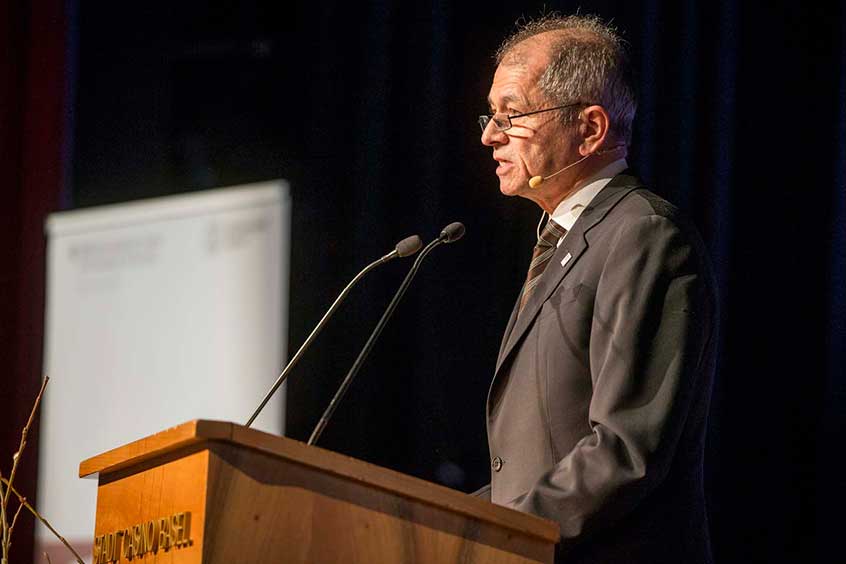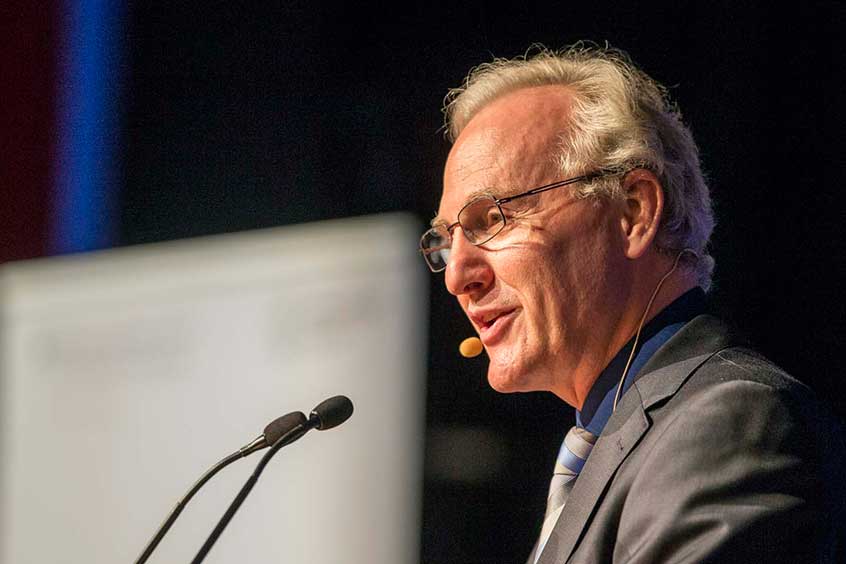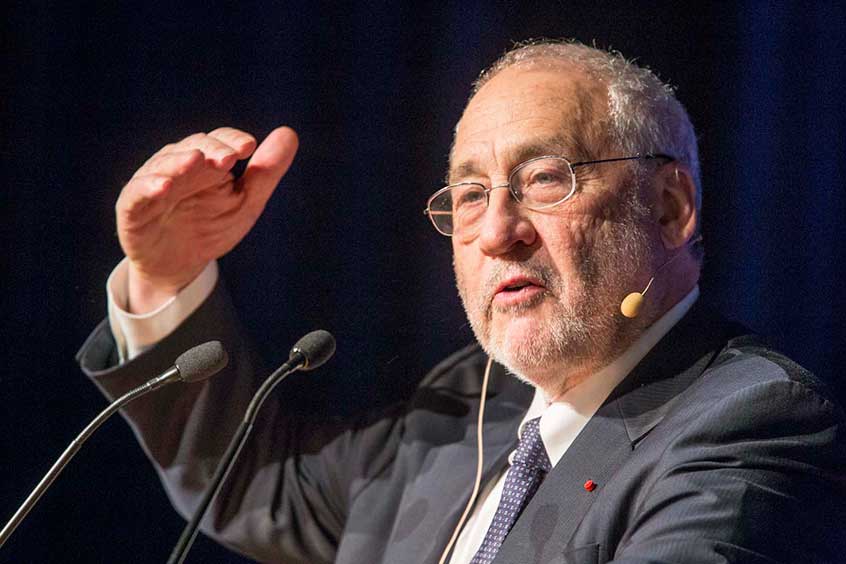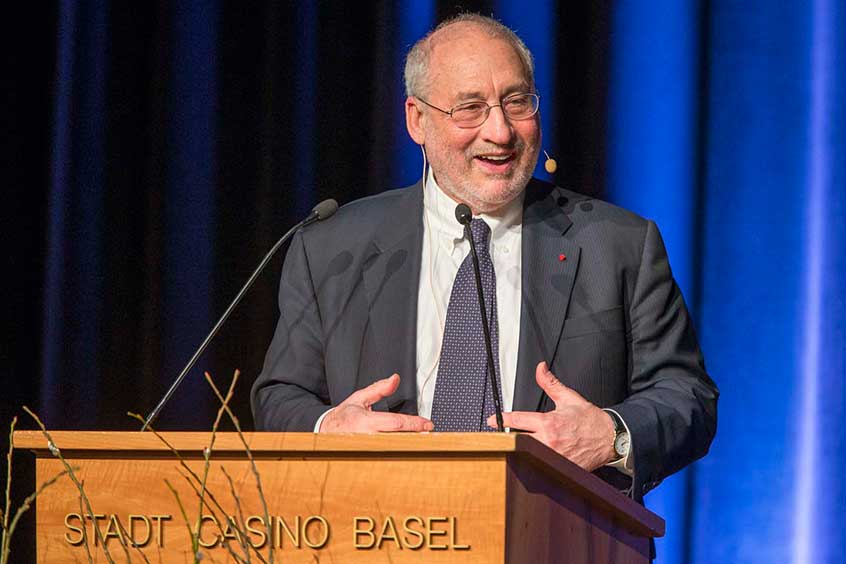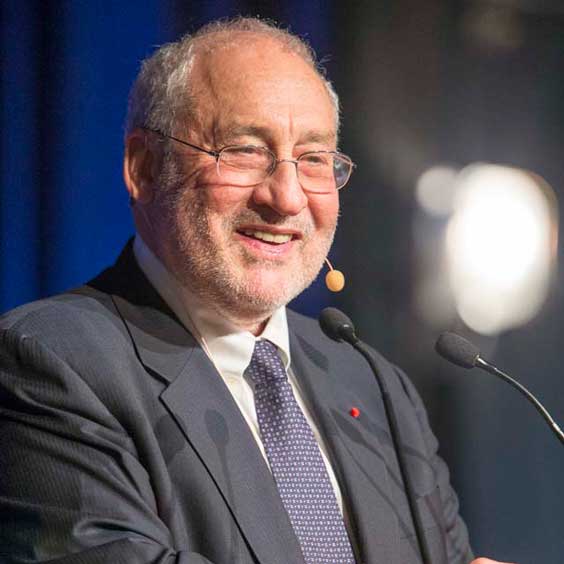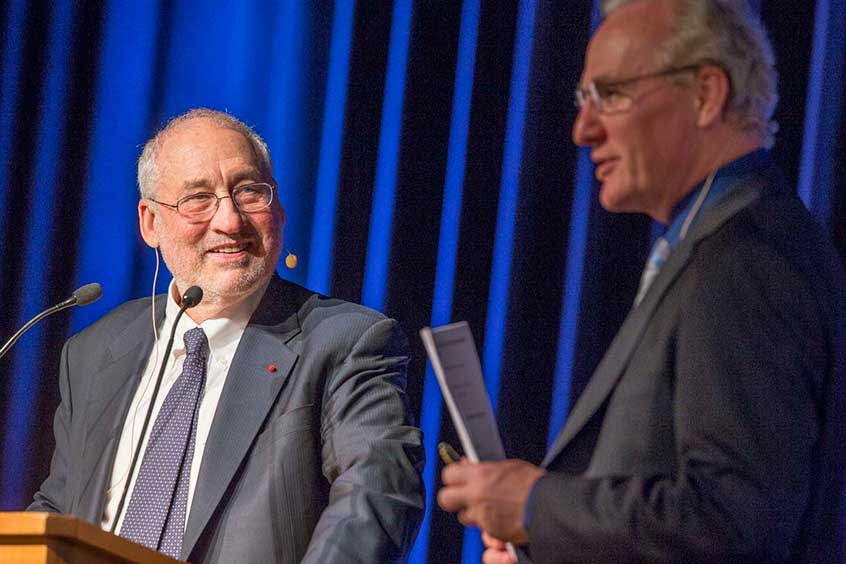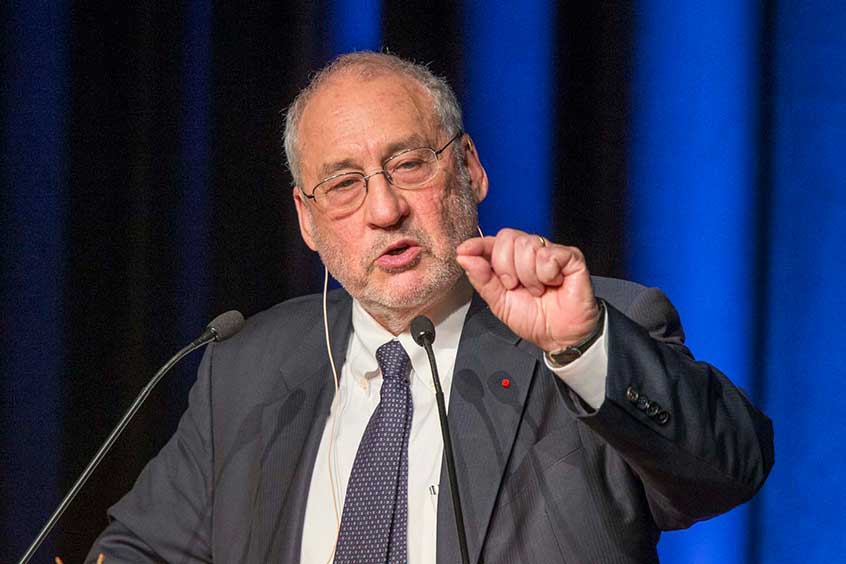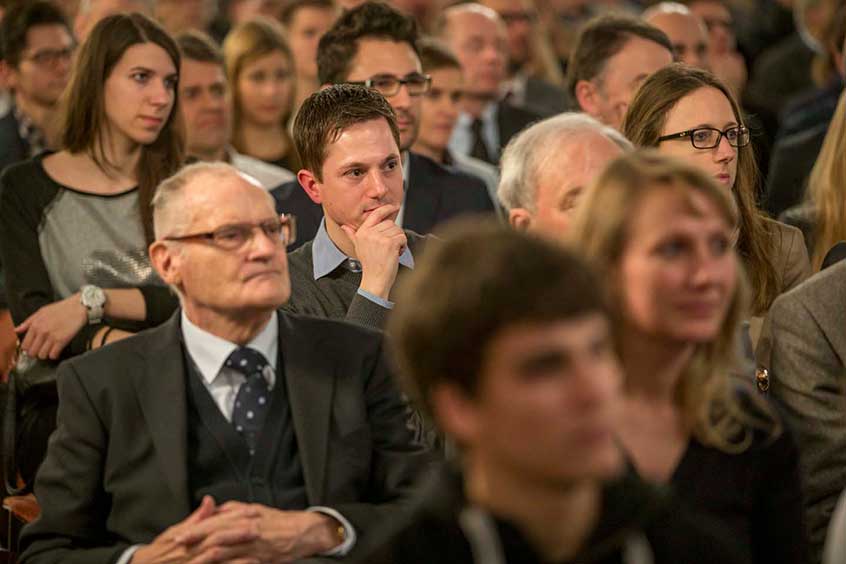The Future of Europe
Video
Europe's crisis
by Maura Wyler
It was a great privilege for the UBS Center to present Prof. Stiglitz – recipient of the Nobel Prize in Economic Sciences – at the public lecture on January 27, where he talked about the future of Europe. Time Magazine named the professor at Columbia University in New York and former Senior Vice President and Chief Economist of the World Bank as one of the 100 most influential people in the world.
Europe’s crisis is deep and it will take years to fully recover
The European Union faces major problems in a large share of its countries. Europe is just now emerging from recession, with a current average unemployment rate of 12% and a youth unemployment rate of 25%. Many countries are in an economic depression, and some are experiencing an economic downturn comparable to the Great Depression. The only exception in the EU seems to be Germany. All other countries’ GDP is lower than in 2007. European growth is not just at zero, but actually negative in many areas.
Even Germany only had an average growth rate of 1%. The cautious optimism that many global leaders shared at the World Economic Forum in Davos astounded Stiglitz. He understands the relief about the slow economic recovery, because economic growth is always better than decline. However, this is a sort of “irrational optimism”. It will take many years to bring growth to where it was before the 2008 recession.
There is a lot of variation in economic performance across Europe – and one shared problem
Stiglitz points out that it is important to determine the weakness of the system responsible for the current crisis. He believes that the basic problem lies in the fundamental European economic model. If you look around Europe, you will see that the best performing economies in Europe are Norway, Sweden, Austria, and Switzerland, all of which use alternative measurements for performance. In comparison, these countries are performing much better than the US. Before the crisis, everyone looked to the US economic model as an ideal example. US GDP was increasing, and many countries concluded that the US economic model was a best practice example. But the 2008 growth was not sustainable, making it clear that the US model has its own flaws. Stiglitz points out that the GDP is itself an imperfect measure, as it neither offers details about the underlying measurement system nor the extent to which these numbers are based on bubbles, debt, or credit.
When the European Union introduced the Euro, monetary policy and exchange rates were removed as adjustment mechanisms without any kind of replacement. The future of Europe – particular the Eurozone – is a matter of politics, not economics. The question is whether the European Union will allow the policies necessary to get it out of the current economic depression. Much depends on the implementation of these reforms. Stiglitz concludes his lecture with a provocative statement, naming the introduction of the Euro as the source of the problems that the European Union is facing today.
by Maura Wyler
It was a great privilege for the UBS Center to present Prof. Stiglitz – recipient of the Nobel Prize in Economic Sciences – at the public lecture on January 27, where he talked about the future of Europe. Time Magazine named the professor at Columbia University in New York and former Senior Vice President and Chief Economist of the World Bank as one of the 100 most influential people in the world.
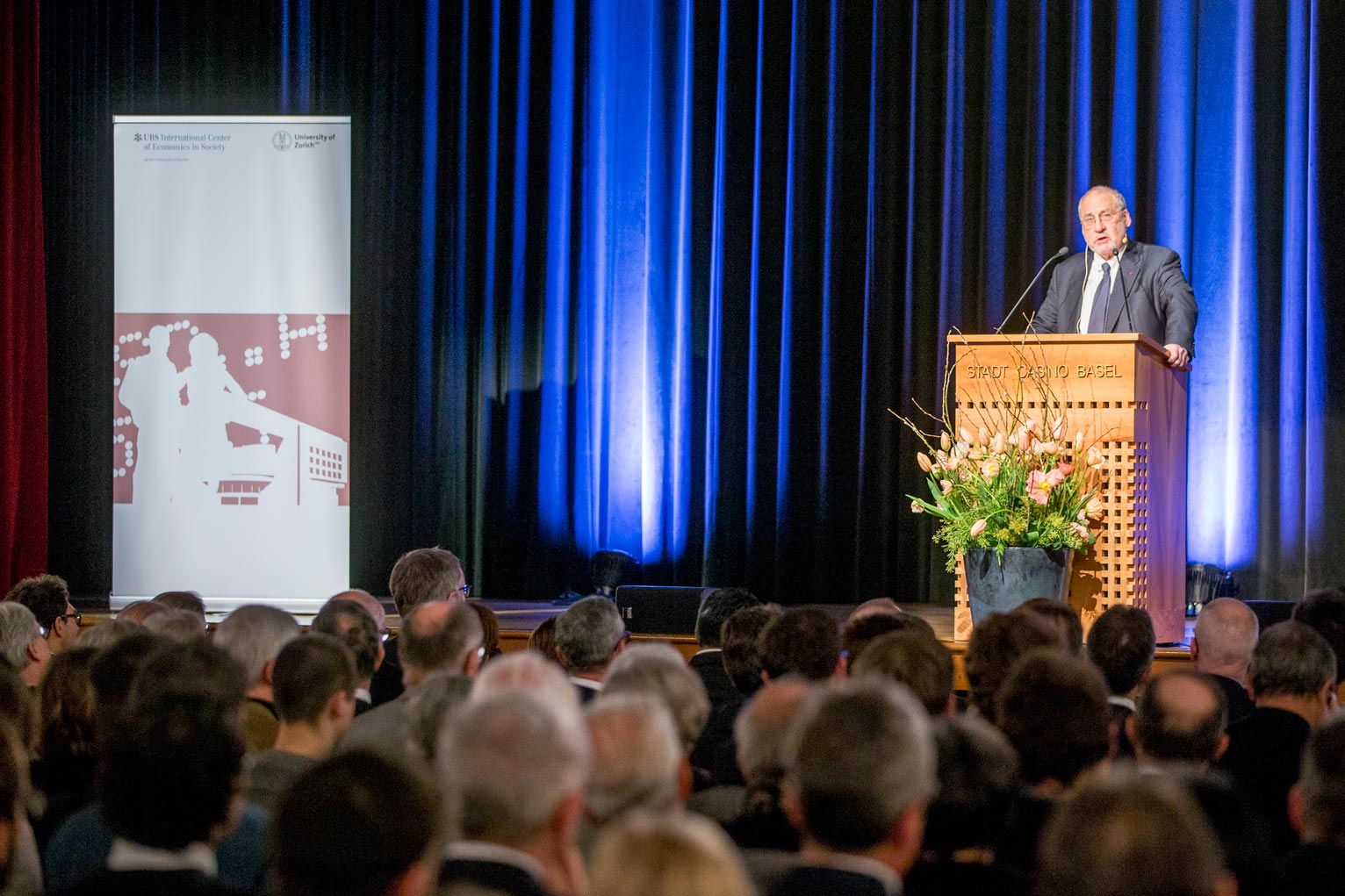
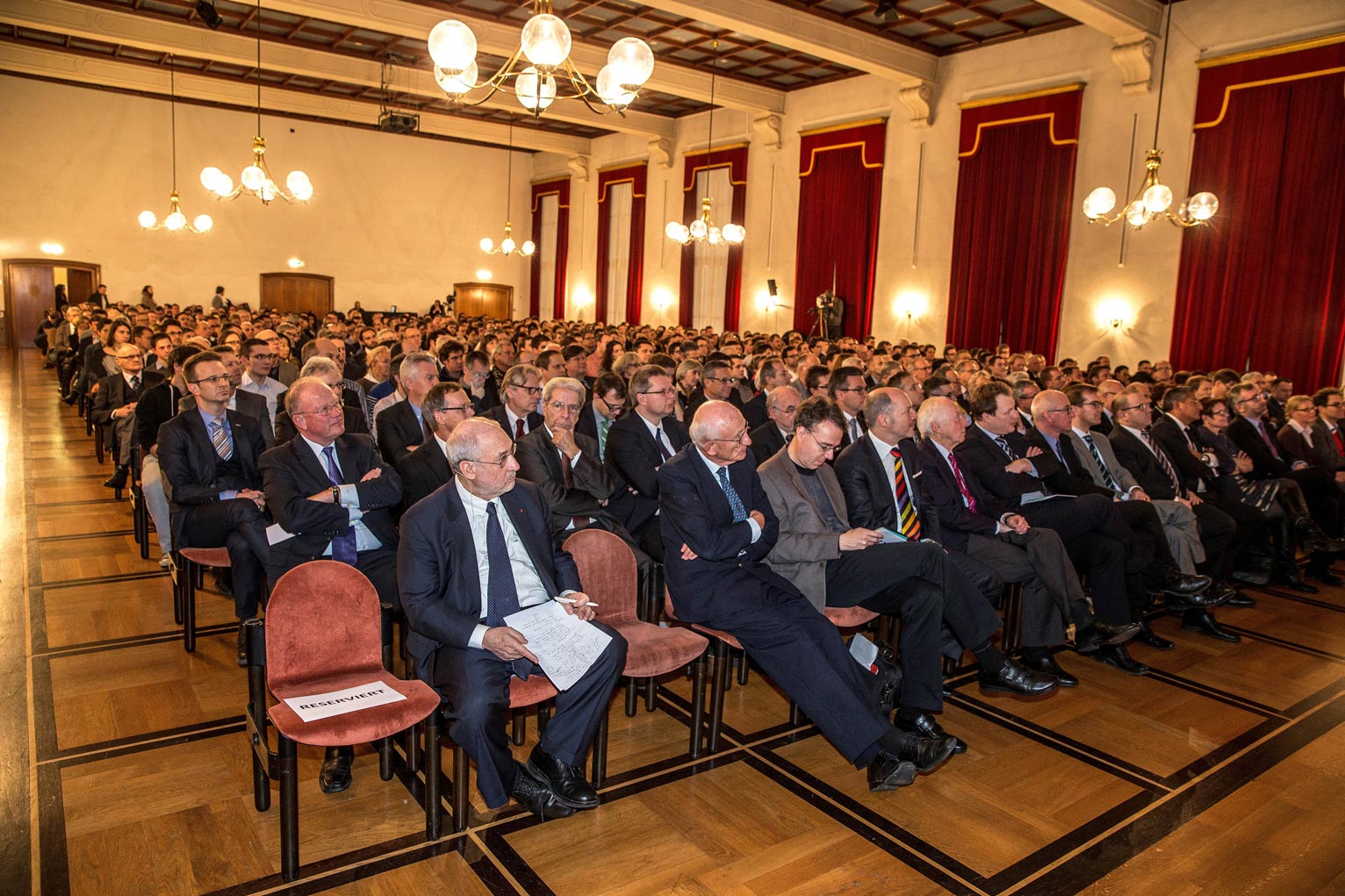
Quote
Speaker
Joseph E. Stiglitz is an American economist and a professor at Columbia University. He is also the co-chair of the High-Level Expert Group on the Measurement of Economic Performance and Social Progress at the OECD, and the Chief Economist of the Roosevelt Institute. A recipient of the Nobel Memorial Prize in Economic Sciences (2001) and the John Bates Clark Medal (1979), he is a former senior vice president and chief economist of the World Bank and a former member and chairman of the (US president's) Council of Economic Advisers.
Joseph E. Stiglitz is an American economist and a professor at Columbia University. He is also the co-chair of the High-Level Expert Group on the Measurement of Economic Performance and Social Progress at the OECD, and the Chief Economist of the Roosevelt Institute. A recipient of the Nobel Memorial Prize in Economic Sciences (2001) and the John Bates Clark Medal (1979), he is a former senior vice president and chief economist of the World Bank and a former member and chairman of the (US president's) Council of Economic Advisers.
Photo gallery
